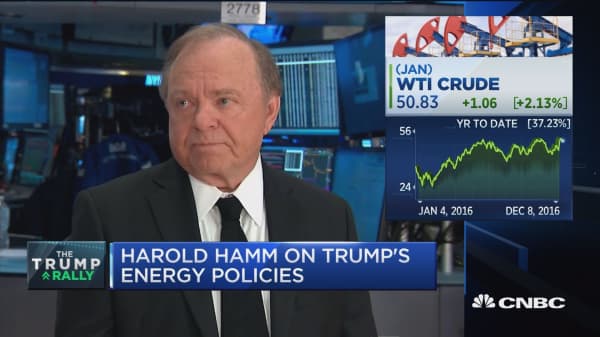Donald Trump has vowed to roll back "job-destroying" environmental regulations, but in his bid to save same fossil fuel jobs, he could shut the door to other, high-paying jobs.
Trump took another step toward undoing President Barack Obama's climate change legacy when his transition team confirmed he would nominate Oklahoma Attorney General Scott Pruitt to head the Environmental Protection Agency.
Pruitt is a climate change denier who has worked to dismantle environmental regulations, including Obama's Clean Power Plan, which would limit greenhouse gases from power plants.





